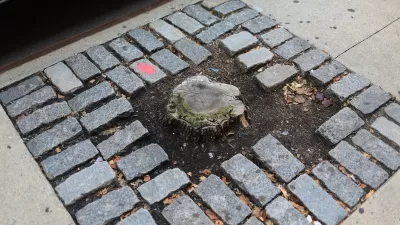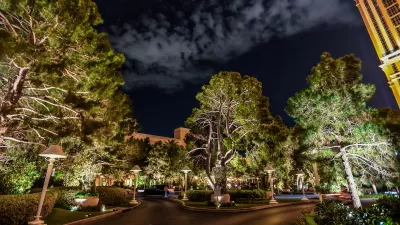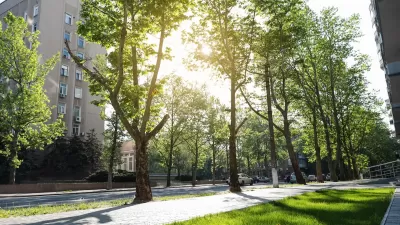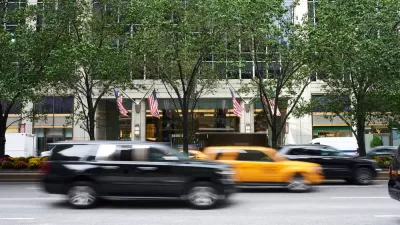Tree planting is a highly visible way to show investment in a community, but without regular maintenance, street trees can become a nuisance rather than a benefit.

An associate professor at North Carolina State University is delving into the long-term impacts of tree planting efforts. Ysabelle Kempe explains: “Smart Cities Dive caught up with Larson to discuss the potential worst outcome of tree-planting efforts, whether trees are inherently valuable to society and why communities in most need of trees may not welcome more.”
Larson points out that “you can’t just put a tree in the ground. You have to nurture it, you have to care for it and maintain it.” Larson explains that, if left unattended, urban trees can quickly die off. Meanwhile, trees, usually viewed as a universal good, can also have negative impacts on communities. “They’re a maintenance issue. They create opportunities for perceived crime in densely forested settings. Sometimes trees fuel property [value] rises and [higher] property taxes, which is a good thing, but it also can catalyze green gentrification, which drives residents out of neighborhoods where they might have been for generations.”
Larson says one obvious solution is “don’t plant trees without public input and community involvement.” For planners or advocates hoping to start tree planting projects, Larson advises, “Take a little bit of time to get to know the place, the key players, and work within their system and the organizations that are based there to make things happen.”
FULL STORY: “Dead trees all over the city”: Where tree-planting efforts go wrong

Planetizen Federal Action Tracker
A weekly monitor of how Trump’s orders and actions are impacting planners and planning in America.

San Francisco's School District Spent $105M To Build Affordable Housing for Teachers — And That's Just the Beginning
SFUSD joins a growing list of school districts using their land holdings to address housing affordability challenges faced by their own employees.

The Tiny, Adorable $7,000 Car Turning Japan Onto EVs
The single seat Mibot charges from a regular plug as quickly as an iPad, and is about half the price of an average EV.

As Trump Phases Out FEMA, Is It Time to Flee the Floodplains?
With less federal funding available for disaster relief efforts, the need to relocate at-risk communities is more urgent than ever.

With Protected Lanes, 460% More People Commute by Bike
For those needing more ammo, more data proving what we already knew is here.

In More Metros Than You’d Think, Suburbs are Now More Expensive Than the City
If you're moving to the burbs to save on square footage, data shows you should think again.
Urban Design for Planners 1: Software Tools
This six-course series explores essential urban design concepts using open source software and equips planners with the tools they need to participate fully in the urban design process.
Planning for Universal Design
Learn the tools for implementing Universal Design in planning regulations.
Smith Gee Studio
City of Charlotte
City of Camden Redevelopment Agency
City of Astoria
Transportation Research & Education Center (TREC) at Portland State University
US High Speed Rail Association
City of Camden Redevelopment Agency
Municipality of Princeton (NJ)





























